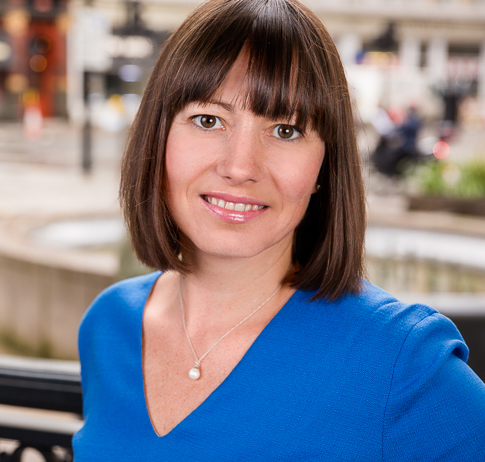Natalie O’Shea and Claire Blakemore discuss how family law is changing for the better for couples facing divorce and separation.
Natalie: It has been a challenging time for many families over the past year and for separating couples especially. What impact do you think coronavirus has had for couples going through a divorce or separation?
Claire: For couples who were experiencing problems in their relationship before the pandemic, some experienced the situation becoming much more conflicted and acute but for others it was a time for reflection and a time to focus on getting their family through the difficult times. As a result I am now seeing couples who have held back from taking the hard step to separate because of the additional pressures of lockdown who are now looking for less confrontational ways to separate.
Natalie: Looking to the future then, and at the many options available to clients who need help and support when their relationship breaks down, how do you see family law changing and how will that benefit families?
Claire: We've been seeing changes coming for a long time. The selling of Court buildings is a physical sign of the messages the courts and the government has been saying for a while – which is that couples need to try to sort out their situation without going to court. We're also seeing a shift in approach. Although, it's been a long time coming (and sadly, there's still further delays) the eventual introduction of no fault divorce law in 2022 not only means the divorce process will hopefully be less painful for divorcing couples but that the reform is in line with the culture of dispute resolution.
There’s still a long way to go but we will see a big growth in uptake of mediation and other forms of resolving disputes without going to court. There’s greater recognition within the profession and judiciary that couples need to understand more about the many options open to them to resolve their difficulties. I also welcome the fact that there’s a greater focus on the children involved in and impacted by family breakdown. The Family Solutions Group Report – Reframing Support for Families following Parental Separation illustrates the need for this. As a profession, we need to respond to these changes quickly and adapt our services to meet client demand. That’s really why we created Uncouple.
Natalie: We’re also seeing that couples are making more and more use of really helpful information and resources from organisations such as Resolution, Voices in the Middle and Money Helper. What else are you seeing?
Claire: Yes, it’s good to see that there’s a growing amount of resources available to couples about the wider emotional and practical aspects that need to be considered. In our team, we’ve always made sure our legal advice is connected to the real practical lives of our clients otherwise it just doesn’t work. And we’ve certainly seen our clients wanting wider family support from us, which was one of the reasons why we created the podcast series Modern Relationships with Mariella Frostrup.
Until fairly recently it was often more difficult to get people to take up wider emotional and psychological professional services, whereas the pandemic has bought into focus the need to take a holistic approach as a separation or divorce is a major life event. I now work with many more professionals in the therapeutic area now than I did 3 or 4 years ago and I see the multi-skilled approach as being best practice. That includes the involvement of not only emotional and practical support but also financial advice. For couples using Uncouple, we bring other experts into the process, as needed, which also makes the process quicker and less expensive as those experts are working directly with the couple and us.
Natalie: Many people have heard about mediation and arbitration, but perhaps are not always clear about what they involve. What's your experience about what clients understand?
Claire: It's very difficult for clients to understand the different options and what the best route for them might be. It's the responsibility of the lawyers to be discussing all these options with their clients. Only last week I spoke to a couple about mediation and our Uncouple service who had been advised by other lawyers that 'it was not legal for one lawyer to work with a couple'. That's completely wrong. Mediation has been an option for couples since the 1980s when one of my colleagues, Diana Parker, and others created mediation for family matters.
Unfortunately there’s a great deal of misinformation out there. For some couples, going to court is needed but for other situations, if people get the right legal guidance they can settle their differences by working with one lawyer. I always tell my clients from the outset what I think is the best route for them based on what I’m told. I’m not wedded to one route at all. I can litigate hard if needed but equally I’m a deal maker. It’s about being a chameleon and adapting to your clients’ situation.
I am very pleased we’ve created Uncouple because it gives couples a great deal of flexibility about how their situation is resolved, combining directed focused negotiations (which is the mediation and evaluation aspects of it) with decision making (arbitration) if agreements can’t be reached. There’s no one size fits all. It’s completely flexible as they move between options as needed and there’s no need to go to Court. We recognise there’ll be differences of opinion and competing outcomes between the couple but, crucially, we remove the parts in the court process that inadvertently create additional conflict. It’s done privately and is more cost effective. We are going to see more developments and shifts in approach, which can only be more positive for separating and divorcing couples going forward.
Per leggere la versione italiana cliccare qui.


